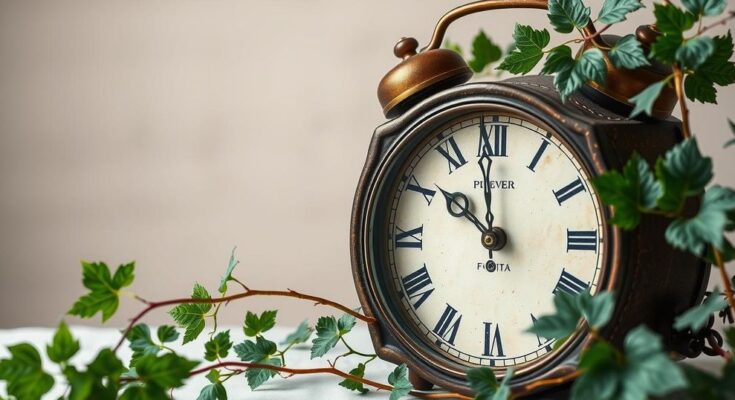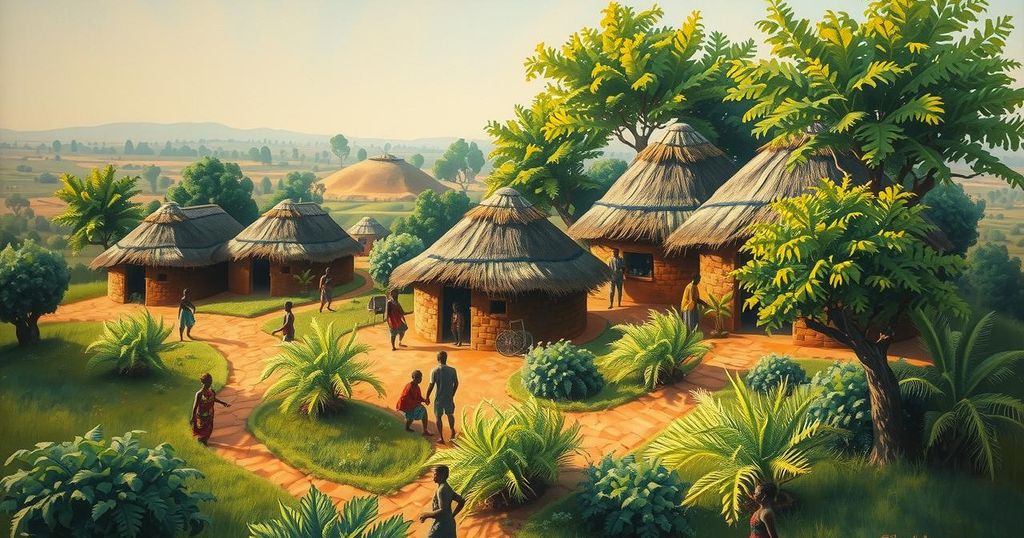Cameroon is poised for elections, likely seeing 91-year-old President Paul Biya run for a record eighth term amidst concerns about his health and capacity to govern. While some opposition factions speculate on Biya’s longevity in power, economic struggles and civil unrest plague the country. With a fragmented opposition, real alternatives to Biya seem limited, raising questions about the nation’s political stability moving forward.
As Cameroon prepares for the polls later this year, 91-year-old President Paul Biya is likely to vie for yet another term, reinforcing his status as Africa’s longest-serving leader. “Biya’s party members have already written a series of motions of support asking him to stand,” commented Dr. John Akpo, a political analyst in Cameroon, who affirmed, “There is no doubt about President Paul Biya’s candidacy for the next election,” despite widespread concerns regarding his health.
Biya has ruled Cameroon for over 42 years, and if reelected, would be 99 by the next elections in 2032. His advanced age raises questions about his capacity to govern effectively. Some opposition figures express skepticism regarding the sincerity of rival parties that support him. Dr. Akpo noted, “Those in opposition calling for the return of President Paul Biya are satellite parties that were created by the same ruling party to fight the [actual] opposition.”
The current political climate in Cameroon reflects significant fragmentation, with a civil war impacting the nation’s stability and economic prosperity. Lawyer Tamfu Richard suggested that Biya’s age has impeded his ability to manage crises effectively. Critics argue that he has suppressed political dissent, jailing peaceful protesters, including Maurice Kamto, a prominent opposition figure.
The ruling Cameroon People’s Democratic Movement (CPDM) maintains power through coalition partners like the Democratic Movement for the Defense of the Republic (MDR) and part of the Union of the Populations of Cameroon (UPC). Despite low support in recent elections, these groups remain pivotal within a broader alliance aimed at countering the influence of opposition leader Maurice Kamto, who is seen as a potential successor.
Recently, Catholic bishops in Cameroon expressed their views on the political situation, advocating for improved living conditions, although their statements were met with governmental criticism. Solomon Lyonga, a spokesperson for the Diocese of Buea, clarified that no direct resignation demands were made, reinforcing that the Church wishes to foster a cooperative relationship with the government.
Economically, Cameroon displays mixed progress. Though GDP growth slowed to 3.3% in 2023, there are indicators of recovery with 3.7% growth noted in early 2024. However, poverty levels remain concerning, with approximately 23% of the population living below the international poverty line. Corruption remains a profound issue, affecting governance and public welfare.
Despite the entrenched challenges, the opposition appears divided and lacks a cohesive alternative to Biya’s prolonged presidency. Lawyer Michele Ndoki observed that some citizens prefer stagnation to the unknown of change, questioning whether Biya remains capable of fulfilling presidential duties while also voicing dissent against his extended rule.
The upcoming elections in Cameroon set the stage for President Paul Biya, who has been in power for 42 years, to pursue an eighth term at the age of 91. His potential candidacy raises questions about his health and governance capability. The country is facing a complex political landscape marred by civil unrest, economic challenges, and a fragmented opposition, complicating the path forward for any real political change. Biya’s administration has faced accusations of suppressing dissent and corruption, further questioning his capacity to lead effectively amidst rising discontent.
The prospect of another term for President Paul Biya in Cameroon raises significant concerns about governance at his advanced age amidst rising political and economic challenges. Supporters within the ruling party and certain opposition factions seem to lack genuine alternatives. Meanwhile, ongoing civil unrest and economic issues continue to impede national stability. The fragmented opposition and legacy of longstanding rule suggest a difficult and uncertain political future for Cameroon.
Original Source: www.dw.com




